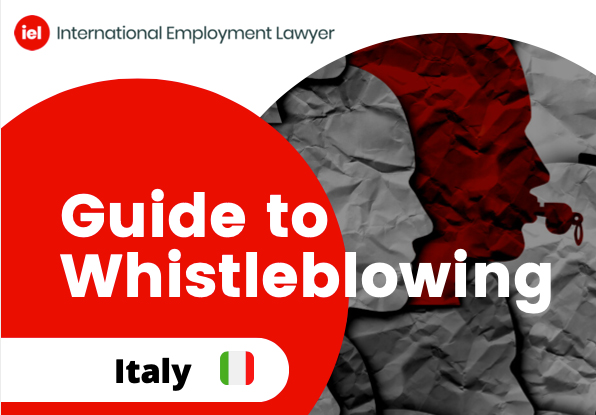Italian legislation on whistleblowing finally comes into effect, the main objective of which is to strengthen the principles of transparency and accountability and prevent the commission of crimes.
The protection covers both the public and private sectors.
Angelo Zambelli and Giulia Cassano have drafted a full guide on Whistleblowing for the IEL international network.
Legal basis for whistleblowing
1. Which body of rules govern the status of whistleblowers?
For a long time, the specific legislation on whistleblowing only covered civil servants (article 54-bis of Legislative Decree No. 165 of 30 March 2001, as introduced by Law No. 190 of 6 November 2012) and, following Legislative Decree No. 72 of 12 May 2015, employees in banks and financial institutions.
Concerning the private sector in general, Law No. 179 of 2017 regulated the status of the whistleblower within the framework of Legislative Decree No. 231 of 8 June 2001, which provides for entities to adopt organisational models that are exempt from liability for certain criminal offences.
Now, Directive (EU) 2019/1937 of the European Parliament and of the Council on the protection of persons reporting infringements of Union law (the EU Whistleblower Directive) has been adopted.
For the implementation of this directive, Legislative Decree 10 March 2023, No. 24 was recently issued (in force as from 15 July 2023). This is intended to be the regulatory point of reference for whistleblowing, both for the public and private sectors.
Implementation of the whistleblowing procedure
2. Which companies must implement a whistleblowing procedure?
The whistleblowing procedure provided for by Legislative Decree No. 24/2023 must be adopted by the following public sector entities:
- public administrations;
- independent administrative authorities; public economic bodies;
- bodies governed by public law;
- public service concessionaires;
- publicly controlled companies; in-house companies, even if listed.
Regarding private entities, the whistleblowing procedure must be adopted by:
(a) entities that have employed, in the past year, an average of at least 50 employees with indefinite or fixed-term employment contracts;
(b) entities operating in the banking, financial, transport, safety or environmental protection sectors, even if they did not have the average number of employees referred to under (a) in the preceding year;
(c) entities that fall within the scope of Legislative Decree No. 231/2001 (ie, entities with legal personality, companies and associations, including those without legal personality) and adopt organisational and management models provided for therein, even if in the last year they have not reached the average number of employees referred to under (a).




